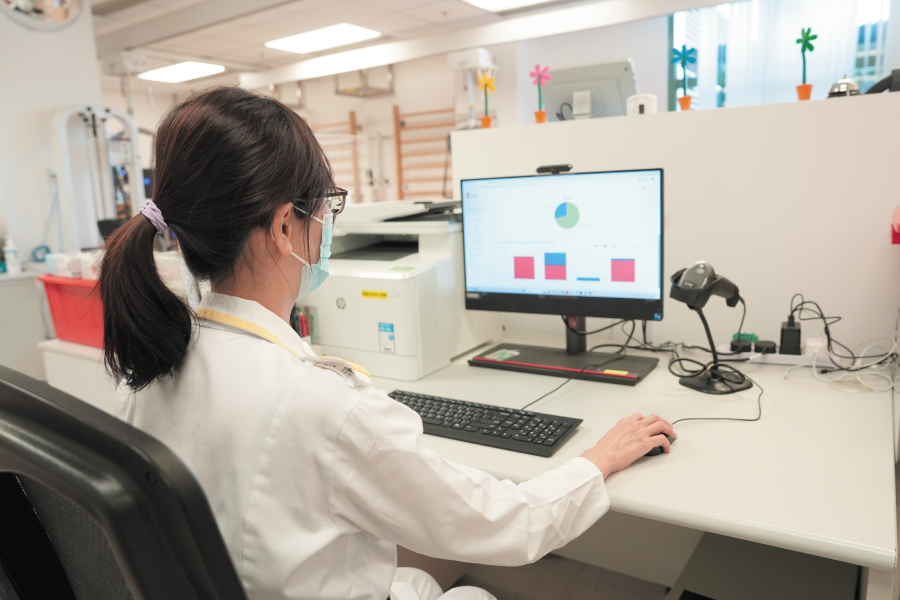Innovative home training redefines rehabilitation experience of elderly patients
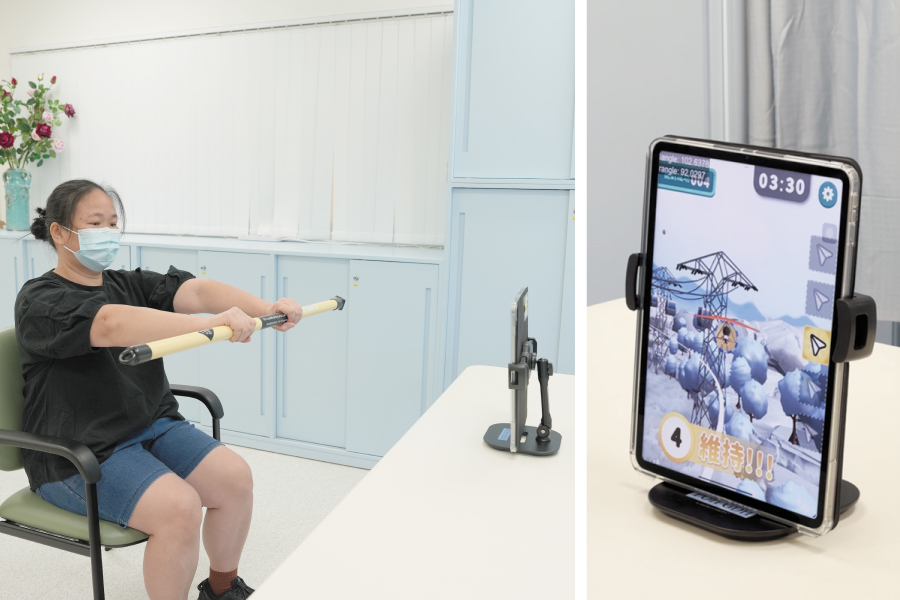
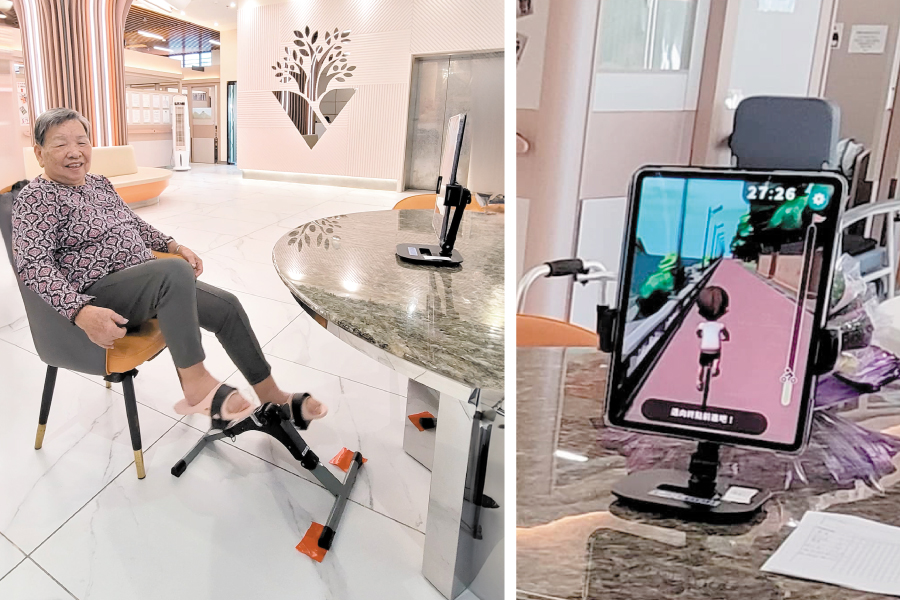 Along with population ageing is the increasing demand for medical services for elderly people. To address the issue, Pok Oi Hospital (POH) is nominated by ‘HKSAR Chief Executive’s Community Project List’ and received funding from The Hong Kong Jockey Club Charities Trust to establish ‘Jockey Club Smart Geriatric Day Hospital Project’, which uses innovative training games to support the rehabilitation of patients at home. Deputy Chief of Service of the Department of Medicine & Geriatrics at POH Dr Tony Chan (photo below) explains, “the recovery process for many elderly people after a serious illness is long and arduous. Through this project, we hope they can carry out more exercises at home to speed up their recovery.”
Along with population ageing is the increasing demand for medical services for elderly people. To address the issue, Pok Oi Hospital (POH) is nominated by ‘HKSAR Chief Executive’s Community Project List’ and received funding from The Hong Kong Jockey Club Charities Trust to establish ‘Jockey Club Smart Geriatric Day Hospital Project’, which uses innovative training games to support the rehabilitation of patients at home. Deputy Chief of Service of the Department of Medicine & Geriatrics at POH Dr Tony Chan (photo below) explains, “the recovery process for many elderly people after a serious illness is long and arduous. Through this project, we hope they can carry out more exercises at home to speed up their recovery.”
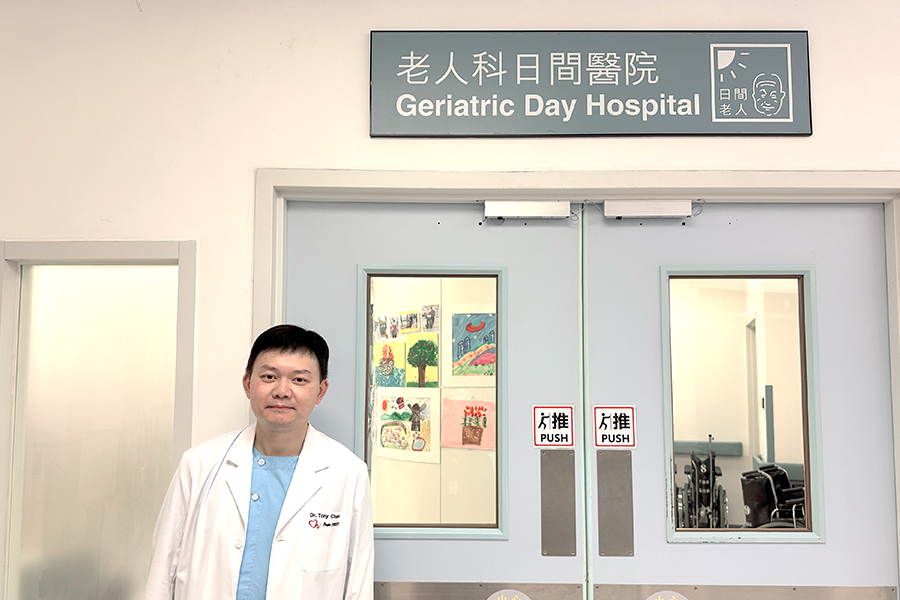 The new project gives patients the opportunity to use tablet, smart watch, and exercise equipment at home to supplement their follow-up hospital appointments after treatment. The tablet comes with preloaded exergames including Mahjong matching, shopping and checkout in supermarket, cycling, paragliding, etc., which together with a smart watch, can monitor elderly patients’ progress and condition in real time. The system collects data on the patients’ home exercise which is then analysed by healthcare professionals to assess the effectiveness of the training and formulate personalised exercise plans.
The new project gives patients the opportunity to use tablet, smart watch, and exercise equipment at home to supplement their follow-up hospital appointments after treatment. The tablet comes with preloaded exergames including Mahjong matching, shopping and checkout in supermarket, cycling, paragliding, etc., which together with a smart watch, can monitor elderly patients’ progress and condition in real time. The system collects data on the patients’ home exercise which is then analysed by healthcare professionals to assess the effectiveness of the training and formulate personalised exercise plans.
Dr Chan believes the approach not only makes the rehabilitation process livelier and more interesting but also allows healthcare professionals to intervene in a timely manner to help patients. “Many elderly people initially think that we only lend them equipment but do not care whether they exercise, but in fact healthcare professionals monitor their exercise progress through the remote platform and will even call them to check on their progress or solve their problems,” he says. “It makes elderly people feel supported and motivated to participate more actively in the training.”
The games are designed to take the needs of elderly people into account and are easy to use and operate, so patients can get started easily and maintain good exercise routines at home. Dr Chan emphasises that the games are not only a diagnostic tool but also a platform for elderly people to challenge themselves and engage in rehabilitation training in a relaxing and enjoyable atmosphere.
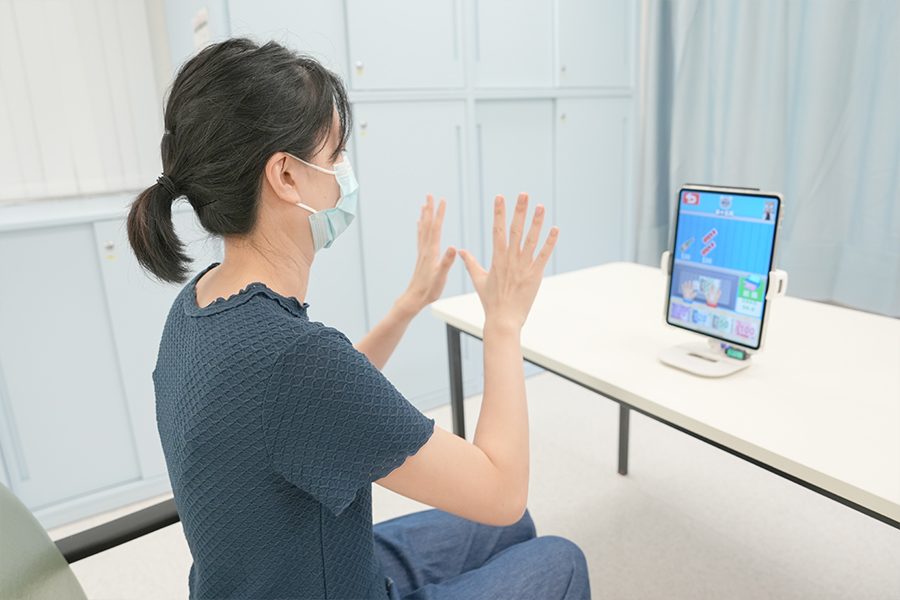
AI monitoring helps adjust training intensity
Around 130 senior citizens have taken advantage of the project since its launch in February. Dr Chan describes how the home-based training had put a spring back in the step of a patient in his 80s, who had become reluctant to go out because of his dementia and his fear of falling. “His wife told me that her husband played the cycling game for half an hour almost every day, even naming the characters in the game, and was very involved in it. His walking ability has now stabilised and he is more willing to go out, which has improved his quality of life,” Dr Chan says.An AI system in the project adjusts the difficulty level of each game according to the elderly person’s exercise data so that patients can progress at a pace that suits them. Patients feel more secure and motivated exercising in a familiar home environment compared with a hospital setting, Dr Chan says. In cases where home rehabilitation is successful, patients can reduce the number of follow-up appointments, freeing up space and training sessions in hospitals to help more people.
Dr Chan sincerely appreciates The Hong Kong Jockey Club Charities Trust for its generous donation, making the project possible for the benefit of patients. “This new project has no previous success stories or pilot projects to build on,” Dr Chan emphasises. “Through donations from The Hong Kong Jockey Club, innovative projects such as this can be funded and we are able to explore new service models. Many of our Hospital Authority colleagues have ideas to enhance patient services, and donations are a good way to turn these good intentions into reality.”
